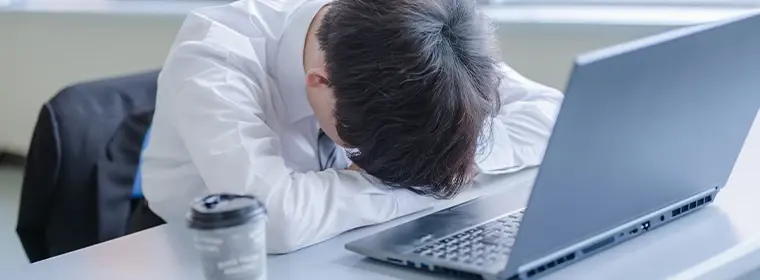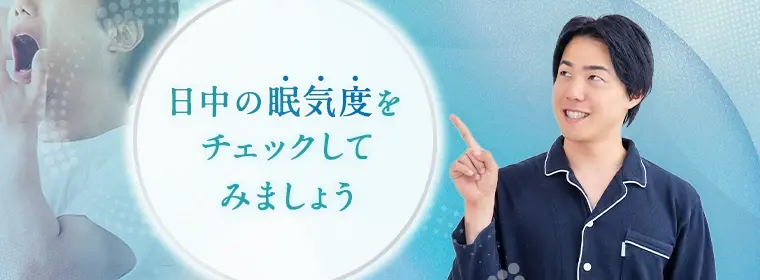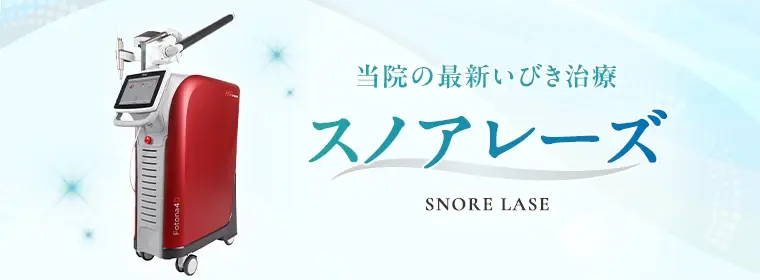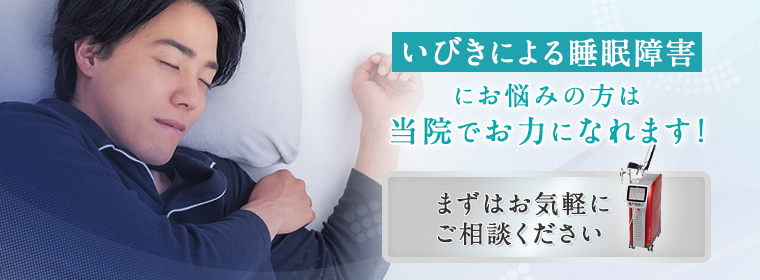For Those Troubled by Daytime Sleepiness
ESS

Many people suffer from daytime sleepiness, such as 'feeling drowsy after lunch' or 'being overwhelmed by sleepiness during work when they shouldn't fall asleep.' While it may seem like simple sleep deprivation or fatigue, there is actually a possibility that an underlying disease could be the cause.
Main Causes of Daytime Sleepiness
Daytime sleepiness has two patterns: 'diseases that cause hypersomnia' and 'simple sleep deprivation.
Diseases That Cause Napping
Sleep Apnea Syndrome (SAS), where breathing temporarily stops during sleep, is well known as a cause of strong daytime sleepiness. Particular attention is needed if you have the following symptoms:
- Loud snoring during sleep
- Breathing stops or becomes shallow during sleep
- Experiencing headaches or dry throat upon waking in the morning
SAS can increase the risk of high blood pressure, heart disease, and diabetes in the long term, so early diagnosis and treatment are important.
Narcolepsy is one of the diseases that causes strong daytime sleepiness, characterized by sudden sleep attacks. This symptom significantly affects quality of life and can sometimes cause traffic accidents or mistakes at work.
- Depression and stress: Mental health conditions can affect sleep quality.
- PMS or thyroid dysfunction: Hormonal imbalances can also affect sleepiness.
- Drug side effects: Medications you are taking may be causing sleepiness.
Sleep Deprivation
One common cause is simple sleep deprivation. In modern society, an increasing number of people cannot secure the necessary sleep time due to work, household chores, entertainment, and other factors. Additionally, when sleep is insufficient, brain and body recovery becomes inadequate, which can cause strong daytime sleepiness.
Check Sleepiness with the Epworth Sleepiness Scale (ESS)

As a simple method to check the degree of daytime sleepiness, there is the 'Epworth Sleepiness Scale (ESS).' This scale asks you to answer the likelihood of falling asleep in 8 different situations and evaluates with a score. Each question is scored from 0 to 3 points, and a total score of 15 or higher is considered high, potentially indicating severe hypersomnia symptoms. If you're concerned, why not try checking once?
Check Sleepiness with ESSCountermeasures for Daytime Sleepiness
If the cause is sleep deprivation or difficulty falling asleep, improving the following lifestyle habits can also help reduce sleepiness.
-
Ensure Adequate Sleep
For adults, approximately 7-9 hours of sleep per day is recommended. -
Maintain a Regular Lifestyle
By going to bed and waking up at the same time every day, you can regulate your internal body clock. -
Engage in Moderate Exercise
Moderate exercise improves sleep quality.
When the Cause of Daytime Sleepiness is Sleep Apnea Syndrome
If the cause of daytime sleepiness is Sleep Apnea Syndrome (SAS), leaving it untreated increases the risk of high blood pressure, heart disease, stroke, and diabetes. Additionally, sleepiness can lead to involvement in troubles such as traffic accidents, making it very dangerous. If you are concerned about strong daytime sleepiness and snoring, our clinic can help. Please feel free to come for a consultation first.
Introduction to Our Clinic's Daytime Sleepiness and Snoring Treatment

Our clinic treats snoring using our proprietary medical laser 'Snoarase.' Snoarase delivers high effectiveness against snoring with minimal pain, and since we customize the irradiation treatment based on each patient's individual examination, we can provide treatment that satisfies everyone. Additionally, by irradiating Snoarase in the oral cavity to widen the airway, it leads to snoring improvement and easier breathing, significantly improving sleep quality. If you are troubled by daytime sleepiness or snoring, please try our clinic's counseling first.






